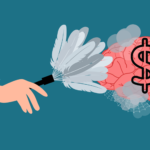Can money buy happiness? This age-old question has intrigued philosophers, scientists, and everyday individuals alike. While financial stability undoubtedly plays a role in our well-being, the relationship between money and happiness is far more complex. In this article, we’ll explore what science reveals about this connection and how you can use money as a tool to enhance your life satisfaction.
Table of Contents
The Science Behind Money and Happiness
Numerous studies have examined the relationship between money and happiness. Research published in PNAS (Proceedings of the National Academy of Sciences) highlights that happiness tends to increase with income, but only up to a certain point approximately $75,000 annually in the U.S. (source). Beyond this threshold, additional income has diminishing returns on emotional well-being.
The reason lies in how we use money. Financial security alleviates stress and ensures basic needs are met, which contributes to happiness. However, once these needs are satisfied, the way we spend and manage money becomes more influential than the amount we earn.

How Spending Habits Affect Happiness
1. Spending on Experiences vs. Material Goods
Studies have consistently shown that spending money on experiences such as travel, concerts, or dining with friends—yields greater happiness than purchasing material possessions. Experiences provide lasting memories and social connections, which are key drivers of well-being (source).
2. Giving to Others
Another significant finding is the joy of giving. Research published in Science reveals that spending money on others—whether through gifts or charitable donations—can lead to greater happiness than spending on oneself (source). This effect is universal across cultures and income levels, reinforcing the idea that generosity promotes emotional satisfaction.
3. Managing Debt
While spending habits matter, the absence of financial stress is equally critical. High levels of debt can significantly impact mental health, undermining any happiness derived from income. Effective debt management and saving strategies are essential for long-term well-being.
Read also: How Emotional Spending Impacts Your Savings Goals
The Role of Gratitude and Perspective
Gratitude is a powerful tool that influences the link between money and happiness. By appreciating what you already have, you can reduce feelings of scarcity and dissatisfaction. Studies from the Greater Good Science Center show that practicing gratitude improves overall life satisfaction, regardless of income level (source).
Perspective also plays a critical role. Comparing your financial situation to others often leads to dissatisfaction, even if you’re financially comfortable. Shifting your focus from external comparisons to personal goals can foster greater contentment.

Using Money to Enhance Happiness
If money can’t directly buy happiness, how can you use it to improve your life satisfaction? Here are some actionable tips:
- Invest in Experiences: Prioritize experiences that bring you joy and create lasting memories.
- Give Generously: Allocate part of your income to help others, whether through donations or acts of kindness.
- Save Strategically: Build a financial safety net to reduce stress and improve your sense of security.
- Spend on Time-Saving Services: Use money to free up time for activities you love, such as hiring help for household chores.
- Avoid Unnecessary Comparisons: Focus on your progress and financial goals rather than competing with others.
Final Thoughts
The connection between money and happiness is nuanced, but science offers valuable insights. While financial stability is essential, true happiness often comes from how you manage and use your money. By focusing on experiences, giving to others, and practicing gratitude, you can enhance your emotional well-being and make meaningful progress toward a happier life.
Remember, it’s not just about how much you earn, it’s about how you spend and prioritize what truly matters. Take small steps today to align your finances with your values and watch how it transforms your happiness.








